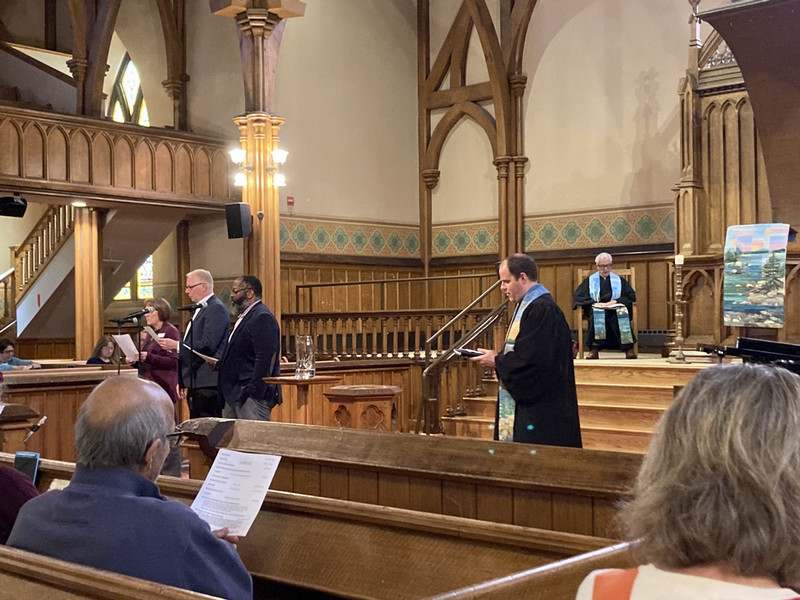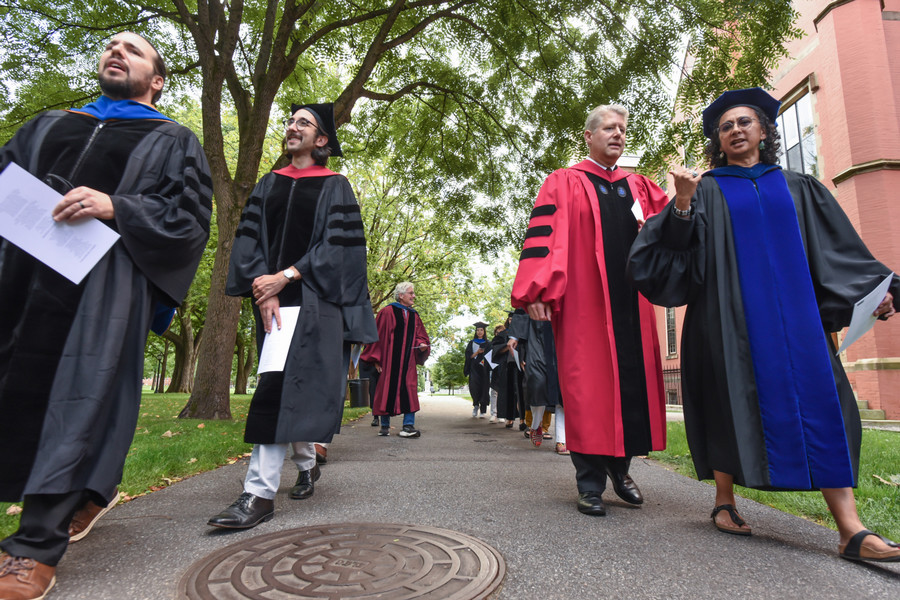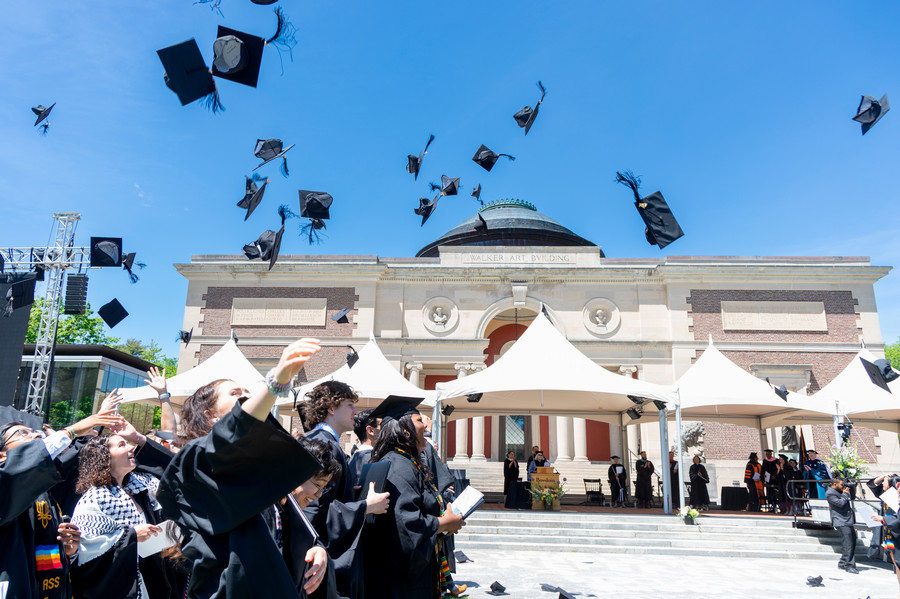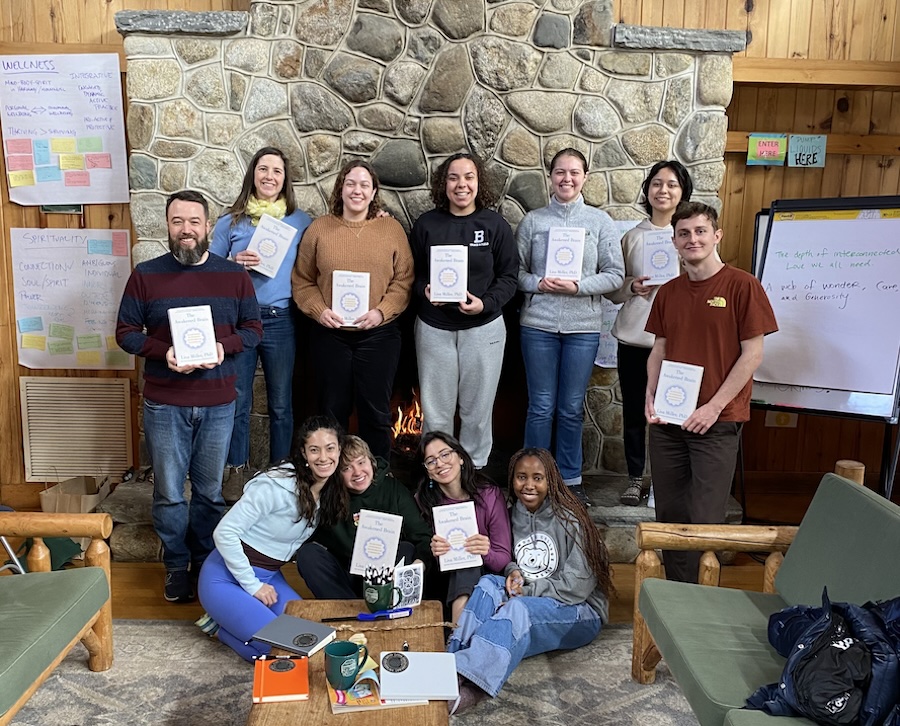Salim Salim ’20 and Catholic Charities Open Window onto Refugee Experience in Maine
By Aleksia Silverman ’19Upon entry into the United States, every refugee receives $1,000 for clothing, housing, food, and other basic, immediate needs—a helpful tool, but one without a user's manual. So how do arrivals navigate their unfamiliar new world?
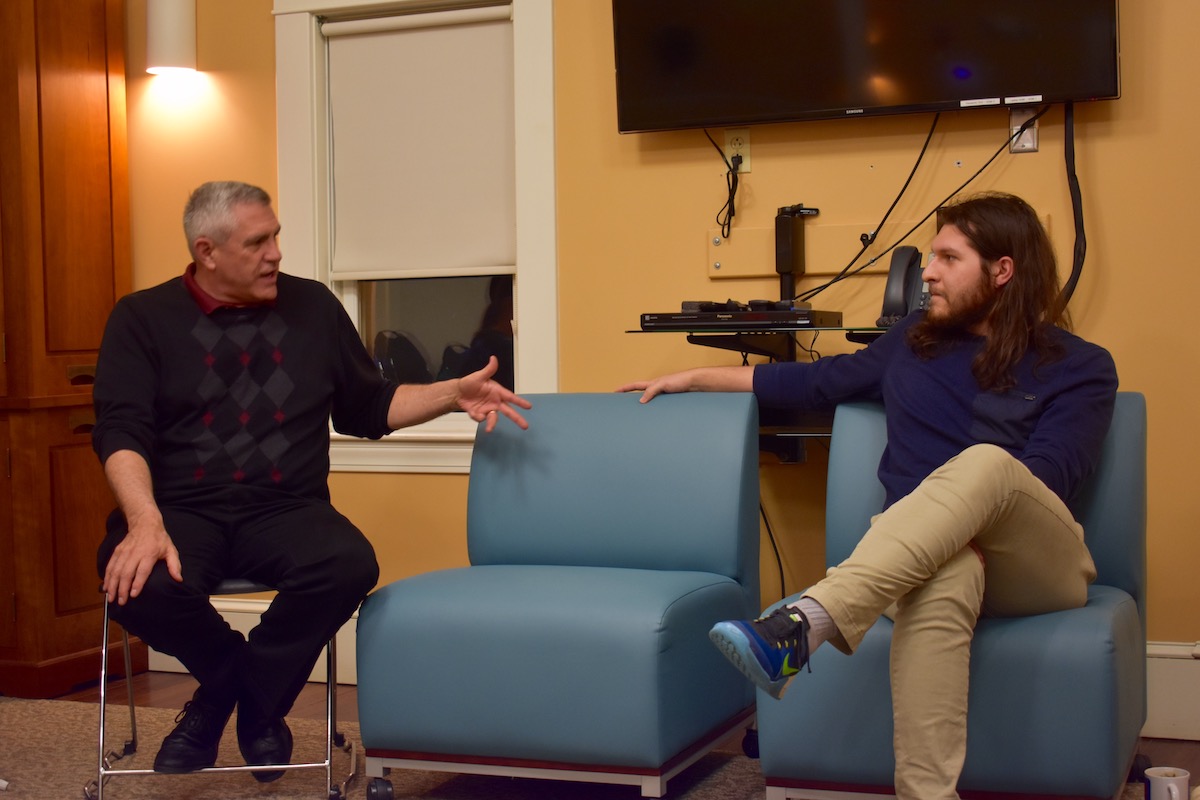
Bowdoin's Catholic Students Union recently invited Catholic Charities' chief operating officer Dean Lachance and Bowdoin junior Salim Salim to share their experiences with refugee communities, each from a very different side—Lachance from the role of being a service provider, and Salim from that of the outsider tasked with gaining refugee status and relocating to Maine.
Salim is a government and education major and a history minor who was born and raised in Mosul, Iraq. At age eleven, he immigrated with his mother and father to the US. Deteriorating conditions in his home country, as well as threats to the family from the Islamic State, led them to seek refuge outside their country.
They lived in Syria, and then Turkey, where they began the rigorous process of achieving refugee status in the United States. In 2011, they were offered the opportunity to move to Portland, Maine. Salim’s family was resettled by RIS, which offers their clients a wide range of services. In addition to connecting refugees with case workers and lawyers or providing essentials like new clothing, the organization helps families navigate cultural and linguistic differences and initiate the process of acquiring a green card.
Even with that assistance, the first month in the states was “overwhelming,” as Salim and his family tried to find permanent housing and begin to learn English.
Yet despite the difficulties, Salim “found a community in Portland because it’s small.” In particular, older refugees and immigrants were eager to help. “A lot of leaders try to reach out to young immigrants and help guide them,” Salim said. “[For example] they’ll organize parent-teacher meetings with translators, because they know how important education is to many families.”
As a college student, Salim has worked at the Portland-based nonprofit The Telling Room, which mentors youth through creative writing, and Seeds of Peace, a summer camp where youth from countries in conflict gain leadership and interpersonal skills. In 2015, as a senior in high school, he delivered a TEDxDirigo talk, “Taking Risks Is Risky,” in which he detailed the dangers taken by his family to flee Iraq, and the risks he says he continues to embrace in his everyday life.
For Lachance, working with refugees has shown him the extent of “the human struggles that people have gone through in the world." He said, "As a parent, you do everything in your powers to leave an area in which you are facing prosecution. You’re faced with such horrific conditions that anything is better.”
Lachance then stressed the need for a more comprehensive understanding of what different immigration statuses mean, and that they be used precisely and correctly. He defined and distinguished between the terms immigrant, undocumented immigrant, refugee, and asylum seeker—classifications that dominate today’s news circuit and are often used interchangeably. He cautioned the listeners that media outlets might “use different terms to mean the same thing.” Salim agreed and added that the array of distinct definitions underscored “how complex the refugee and immigration status is.”
Viviane Kostin ’19, one of the Catholic Student Union coleaders, said she wanted to organize the event to reach out to students from all religious denominations and backgrounds and invite them to have a conversation about social justice and nonprofit work.
Kostin is a religion major and education minor who will be attending Harvard Divinity School next year to study religious literary. She stressed the ability for community organizations like Catholic Charities to “[remind students] that the world is larger than our own campus, and prompt us to think in new ways about our identities, privileges, and experiences.”
